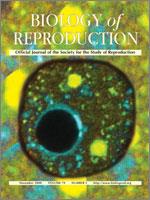In vitro culturing of normal human seminiferous epithelium remains largely unexplored. To study normal human spermatogenesis in vitro, we used a micromethod for the purification and culture of Sertoli cells, spermatogonia A, spermatocytes, and early round spermatids. Cytological quantitative data for Sertoli and premeiotic germ cell cocultures isolated from normal testicular biopsies demonstrated that cells were able to proliferate (4%), complete meiosis (6.7%), and differentiate into late round (54%), elongating (49%), and elongated (17%) spermatids at similar in vivo time delays (up to 16 days) in response to FSH testosterone stimulation. Cells maintained normal meiotic segregation, chromosome complements, and specific gene expression profiles. Follicle-stimulating hormone testosterone stimulated spermatogonia proliferation and Sertoli cell survival. Follicle-stimulating hormone and especially FSH testosterone increased diploid germ cell survival during the first week, whereas only FSH testosterone was able to inhibit cell death during the second week of culture. Follicle-stimulating hormone and especially FSH testosterone also stimulated meiosis resumption, although this was restricted to late pachytene and secondary spermatocytes. In contrast, spermiogenesis was only stimulated by FSH testosterone. Expression studies showed that apoptosis was induced in the nucleus of diploid cells, and in nuclear and cytoplasmic compartments of spermatids, mainly triggered by the Fas pathway. Although junctional complexes between Sertoli and premeiotic germ cells were partially reacquired, the same did not apply to spermatids, suggesting that FSH potentiated by testosterone was unable to render Sertoli cells competent to bind round spermatids.
How to translate text using browser tools
1 November 2008
Cytological and Expression Studies and Quantitative Analysis of the Temporal and Stage-Specific Effects of Follicle-Stimulating Hormone and Testosterone During Cocultures of the Normal Human Seminiferous Epithelium
Rosália Sá,
Rui Neves,
Susana Fernandes,
Cláudia Alves,
Filipa Carvalho,
Joaquina Silva,
Nieves Cremades,
Isabel Malheiro,
Alberto Barros,
Mário Sousa
ACCESS THE FULL ARTICLE

Biology of Reproduction
Vol. 79 • No. 5
November 2008
Vol. 79 • No. 5
November 2008
Apoptosis
germ cell differentiation
germ cell proliferation
meiosis
spermatogenesis in vitro




